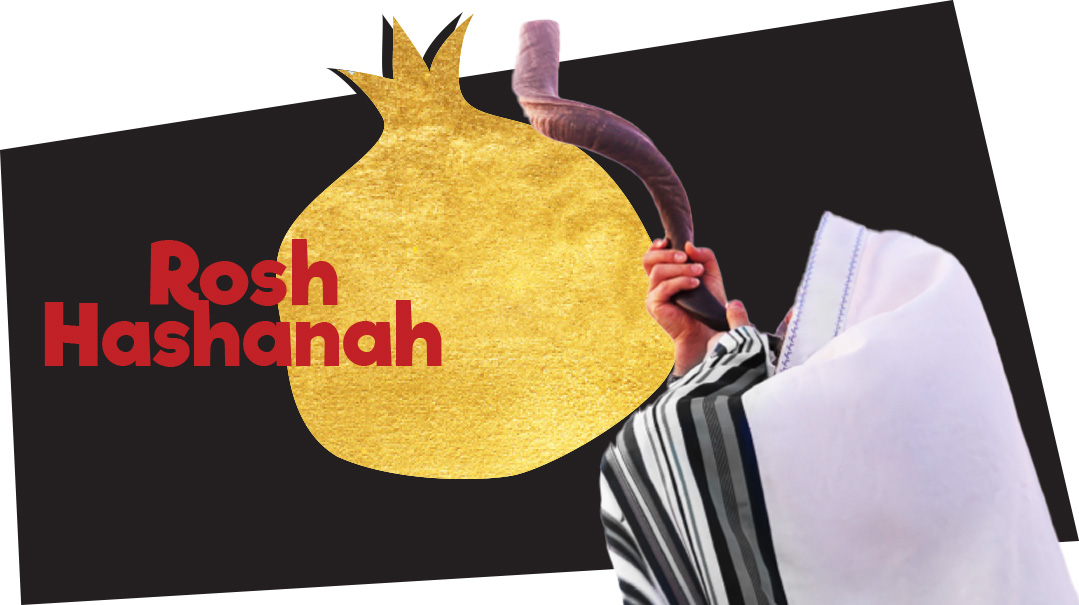In the Spirit of…Rosh Hashanah
| September 20, 2022Yom Tov trivia

The Mishnah in Maseches Rosh Hashanah tells us that Rosh Hashanah is not the only “New Year” in Yiddishkeit. What are the others?
Tu B’Shevat — Rosh Hashanah l’ilanos (for the trees); Alef Nissan — Rosh Hashanah for the Chagim; Alef Elul — Rosh Hashanah for maaser beheimah]
Believe It or Not!
Do you know what a telegram is? In the days before cell phones or email, and even before people had a phone line at home, friends and relatives communicated via telegram. A telegram was a message sent by a machine called a telegraph; the sender would visit his local telegraph office, and dictate the message he wanted delivered. The telegraph office would telegraph the message to the recipient’s local office, where it would be copied onto paper and delivered to the recipient. Because the sender had to pay for each word, telegrams were historically short and to the point. Common telegrams would say: “Mother sick. Come soon.” Or “Baby boy. Everyone well.” It was a way to update loved ones and stay in touch in a world so different from the one we know now.
Yidden used telegrams to wish each other a shanah tovah, too. Before Rosh Hashanah each year, there was a major increase in telegraph messages, with thousands of messages exchanged each year. Amazingly, in 1925, the Western Union Telegraph Company instituted a special service before Rosh Hashanah, the way they did before the major non-Jewish holidays, to handle the volume of telegrams!
Rhyming Riddle
Let’s see if you can tell me
What the difference might be
Why Rosh Hashanah is unique
Observed differently
For those who live in the Holy Land
Rosh Hashanah’s not the same
There’s a major difference
What is this special chag’s fame?
And here’s an extra question,
For the expert girl or guy
Now that you told me what makes it unique,
Do you know the reason why?
What makes Rosh Hashanah different from any other chag for those in Eretz Yisrael? What is the reason for that difference?
Answer:
The difference between Rosh Hashanah and other holidays in Eretz Yisrael is that Rosh Hashanah is kept for two days, like in chutz l’Aretz, and not one day, like every other Yom Tov in Israel.
Fun Fact
In 1927, the Western Union Telegraph Company reported that Jewish people sent congratulatory messages and well-wishing messages more frequently than any other group.
Tashlich Tales
You’ve learned about the minhag of Tashlich. Where do you say Tashlich? Do you say it on Rosh Hashanah, or during Aseres Yemei Teshuvah?
Here are some ways different people do Tashlich all over the world. During Aseres Yemei Teshuvah, our family takes a bus to Bnei Brak, and we get off at the last stop. Just a five-minute walk from the bus stop is a real stream, and we say Tashlich there every year.
In Santa Monica, California, we once said Tashlich at the beach. But it was after hours, and we weren’t supposed to be there. There were helicopters looking for people on the beach, so we hid under the pier!
In Yerushalayim, at the Mir Yeshivah, we say Tashlich at the sinks next to the bathrooms.
In Lakewood, we say Tashlich at the lake.
In New York, I say Tashlich on the Brooklyn Bridge.
In Pittsburgh, Pennsylvania, where my grandmother grew up, she told me that they opened the faucet and said Tashlich at the sink.
In Bayit Vegan, we say Tashlich at the water tower, even though you can’t see the water at all.
In Ramot, my shul says Tashlich at the Keilim Mikveh.
In Bnei Brak, we moved into a new apartment in one of the only “high up” areas in the city (meaning our building is on a hill, although most of Bnei Brak is flat). On our first Rosh Hashanah in our new house, someone knocked on the door to come say Tashlich. We didn’t know what she meant, and as we were trying to figure out what she was talking about, more and more people started climbing up the stairs to our apartment to say Tashlich! It turns out that the people who lived here before us opened up their apartment every Rosh Hashanah because from the bedroom window, you can see the ocean. We quickly cleaned up and let everyone troop in to use the window to say Tashlich!
In Kiryat Sefer, I say Tashlich near a fish tank. Some of my friends’ families climb up to the highest point in the city — if it’s a clear day, you can see the Mediterranean Sea.
In Beitar, we say Tashlich while looking towards the Wadi Fukin water reservoir. The Arabs use it for their fields.
In Providence, Rhode Island, we say Tashlich down at the river. It’s past the eiruv, but it’s a beautiful walk.
In Yerushalayim, we said Tashlich at my friend’s fish tank. But within a few weeks, all the fish died, and my friend was sure it was because of everyone’s aveiros. He got new fish, but he doesn’t let us say Tashlich there anymore!
In Moshav Matityahu, on Rosh Hashanah, there is an appointed time for men and women to go separately to two different families who have fish ponds in their gardens.
Story Time
Siberia. Early 1940s.
Imprisonment. Work camp. The words alone give a taste of the bitter distress of the Yidden exiled there.
One of those Jews was a thirteen-year-old boy, who grew up to be Rav Meir Halberstam. He was there together with his grandfather — the Rebbe of Zmigrod, Rav Sinai Halberstam.
The weather was growing colder, the winds more vicious, as the fleeting Siberian summer drew to a close. Rosh Hashanah was approaching, and the Rebbe was distraught, for although he had his special shofar, blowing it would arouse the wrath of the evil and cruel Russian guards. How could he place his life in danger? Yet how could he give up the mitzvah of blowing the shofar on Rosh Hashanah?
Two nights before Rosh Hashanah, his grandson Meir lay awake. The biting winds howled around the barracks. Meir stealthily wrapped his feet and hands in cloth to muffle any sounds. Then, hardly breathing, he silently snuck past the guards, who had succumbed to drunken sleep a short distance away.
Meir fought his way through the icy cold and fierce wind to the front of the camp. There he found the massive bell he was looking for, the bell used to wake the prisoners every morning. Meir made his way up a tall post and reached the top of the bell. With hands nearly numb from the cold, he struggled against the thick rope holding the bell up until he accomplished his goal. Freed from its rope, the giant bell slipped down to the ground and shattered. Silently, Meir slipped away and made his way back to the barracks.
When morning came, the guards were livid; there was no way they could get a new bell in the foreseeable future. How would they wake their prisoners? Meir whispered his ingenious plan to his Zeidy. The Rebbe came forward and offered his services to the guards. “I have a horn. I can blow it every morning to wake everyone.”
“Bring it at once!”
The Rebbe brought the shofar and proceeded to blow clear, loud blasts that could be heard throughout the camp.
The commander roughly grabbed the shofar from the Rebbe and tried to blow it himself — but no sound emerged. He huffed and puffed and turned red in the face, but the shofar was silent.
One of the men said, “You know, this old man is a professional horn-blower. He has lots of experience using this instrument.”
The commander handed the shofar back to the Rebbe. “From now on, until we procure a new bell, it will be your job to rouse the prisoners,” he declared.
The following morning was the first day of Rosh Hashanah.
And as the sun rose over the horizon, shining weakly onto the frigid tundra, the piercing sounds of the shofar blasts reverberated through the camp.
The Jewish prisoners squeezed their eyes shut and concentrated on fulfilling this important mitzvah. Even here. Even now.
And Meir closed his eyes, too. In prayer, and in gratitude.
A kesivah v’chasimah tovah to all!
(Originally featured in Mishpacha Jr., Issue 929)
Oops! We could not locate your form.


